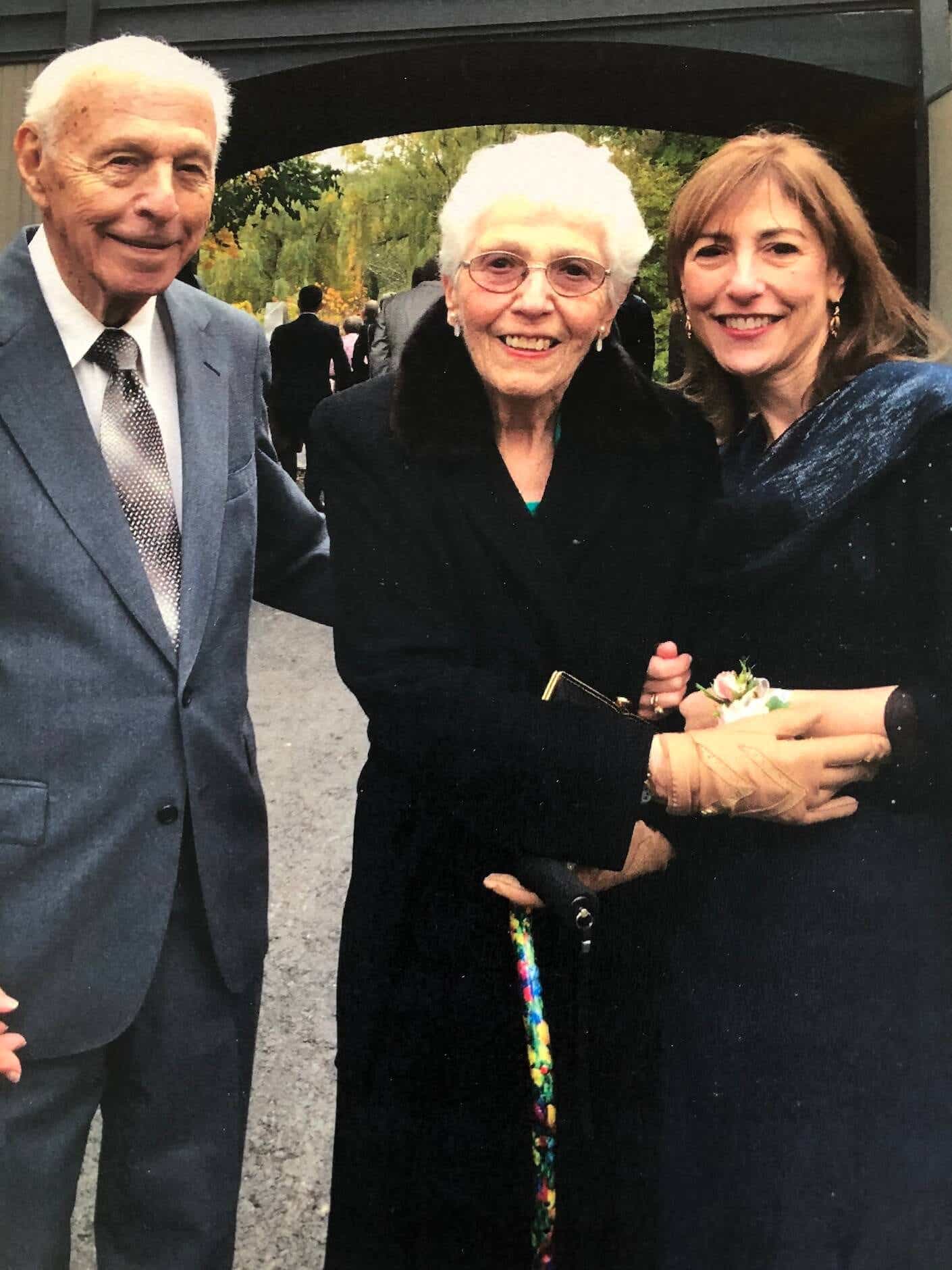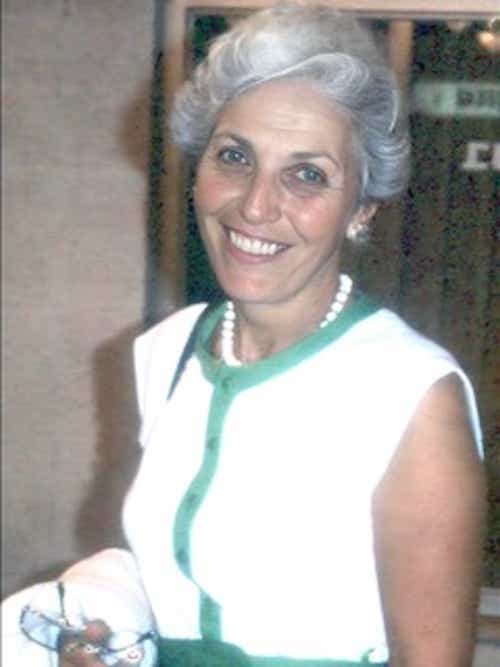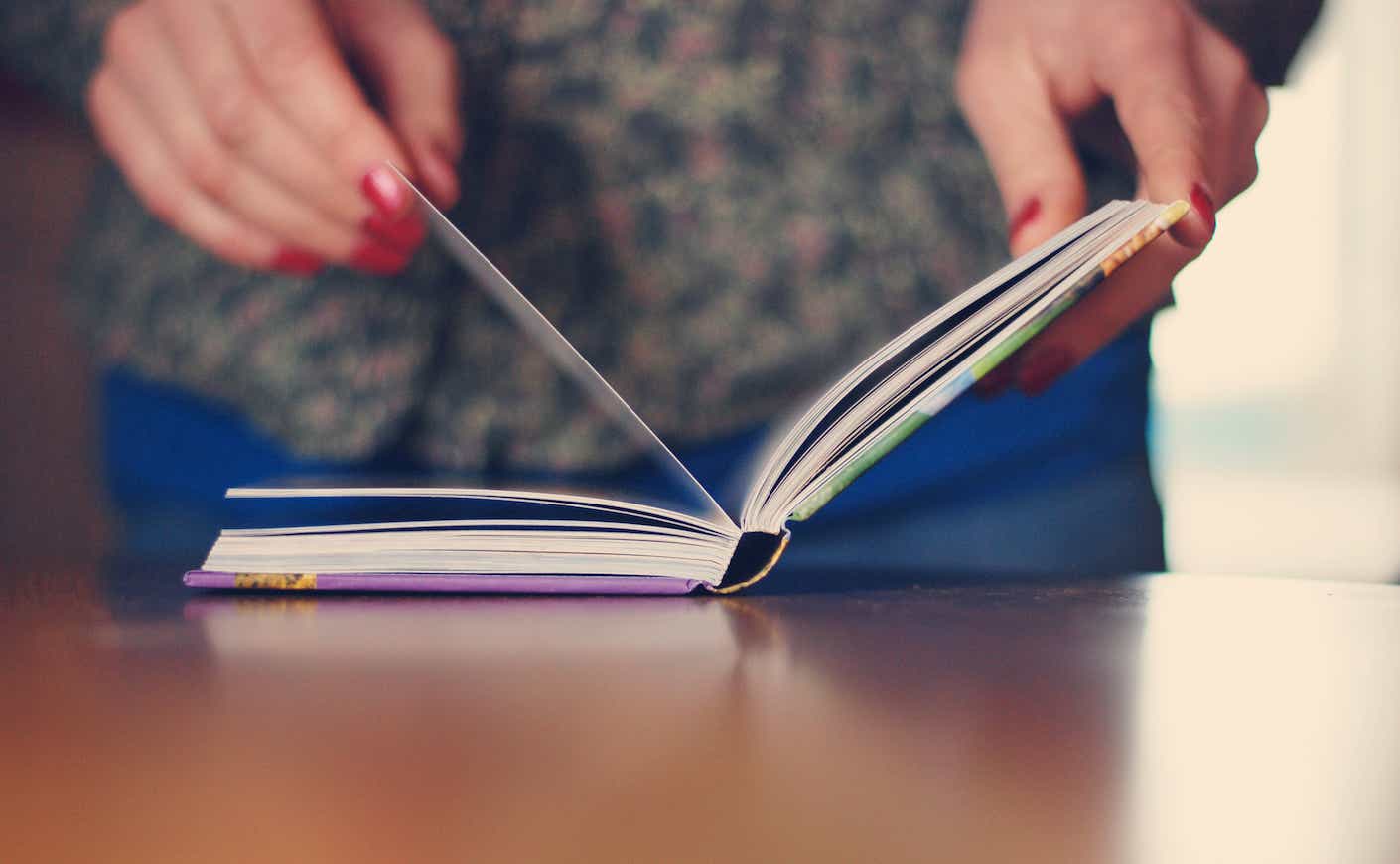My mother was 89 years old when she died in her own home, where she wanted to be, but she didn’t have a peaceful death. When this last bout of pneumonia had worsened, her doctor had forewarned us that she wouldn’t survive. Still mentally sharp and aware of what was happening, she spent her remaining hours fighting to stay alive and calling for her mother. By the time my sister and I had rented and driven the car from New York to Connecticut, we were too late to be with her.
When we arrived at our childhood home, we consoled our father and brother, who had the unenviable task of removing our mother’s wedding ring and telling our father, on the brink of severe dementia, that the most important person in his life had just died. They had been married for almost 68 years. For as long as I can remember, he had called her “Honey,” but now repeatedly said, “I miss my Janet.”
I went into their bedroom and saw her hospice bed, which she’d been in only once, that night before. It was positioned next to their double bed and its sheets were in disarray; her glasses and tissues lay on her night table; her hairbrush, filled with strands of white hair, visible on the dresser; her slippers beside the bed. I felt my mother’s presence strongly. I buried my face in her pillow, hoping to take in her scent, just as I had done as an 11-year-old, hugging her bathrobe, when she traveled to be with my 18-year-old sister who needed surgery.
Nothing could prepare me for the reality of our mother’s death. The reaction was physical — I felt a deep hollowness in my stomach and a familiar longing to be near her. But why did I feel this so acutely? Because of her emotional reserve, we were never close in the ways that I wanted, needed, and tried to be. Toward the end of her life, she became more anxious about sickness and losing my father to dementia, and she often directed her anger at me.
“Mom, you know you can’t eat that hot dog,” I once reminded her because of food aspiration. “I will eat what I want,” she said. I relented, allowing her the dignity to say and do whatever she wanted. The next day, when I called, she said, “You’re one of my favorite people.” “I am?” I asked incredulously. “One of,” she said. I laughed.

My beautiful, refined, and educated mother had been a very private person, unknowable to anyone except my father, the only one she trusted. Throughout my life, I yearned to be close to her, first as a young child, adoring everything about her, and then as an adult striving for autonomy yet still longing for closeness. But that was not to be. She chose to live a carefully defined life, rarely revealing inner parts. I thought her need for privacy was a way to protect secrets because, unlike my siblings, I knew one: My mother had a diary. Thirty-three years earlier, she had read me an entry, and it was a moment of closeness and compassion that I will always remember.
I was 25 and engaged, but instead of feeling sure and excited, I was fearful of marriage. I reasoned that I was too young, I would lose my independence, and there were still things I wanted to do, such as travel and study. I had always seen myself as having a career and getting married in my 30s, but love came unexpectedly, so my plans changed.
Six months before the wedding, I visited from Boston, where I had been living, and said, “I don’t know if I’m doing the right thing.” My mother and I sat on the living room couch, beneath the large picture window of their mid-century home. She listened and then moved toward an end table. Several books on the table obscured a drawer. Removing the books and crystal bookends, she opened the drawer and retrieved a faded green cloth-covered notebook. Large black letters declared: My Diary, J.D.S. (my mother’s initials). She flipped through many pages and read an entry expressing her fears, doubts, and confusion.
Monday, August 29, 1949: Why am I unsure of myself? Is it a normal reaction before entering marriage?
She eventually resolved her feelings, realizing that her older brothers’ opinions were causing her worries.
Wednesday, January 11, 1950: I have eliminated a great many of my fears and doubts. There is no doubt in my mind as to my love for Frank. I know we can truly make each other happy.”
They married September 10, 1950, and had a loving marriage, so much so that it often felt as if they were an island unto themselves. Her reading comforted me and eased my fears, and I held onto that rare intimacy. As my sister put it, “She was not a warm and fuzzy mother.”
My mother never shared her writing with me again, but her doing so left an impression. I, too, had been keeping a journal for years. I determined that this was one of our shared bonds, and because of that, on the morning of her death, I sought out her writing.
I searched as stealthily as possible, first looking in the barricaded drawer. It wasn’t there. Next, I went into the bedroom. With my family in other rooms, I opened the closet and scanned the floor, pushing aside shoes and dresses to look in darkened corners. Then I searched the top shelf. I found and opened a box, discovering article clippings and a New York Times front page announcing Kennedy’s assassination. I set the box aside, stretched upward, and felt for anything else. Then, 33 years after first learning of its existence, I found it.
I knew taking the diary was wrong without my siblings’ knowledge, but I rationalized that because I knew it existed and they didn’t, my actions were permissible. However, once I obtained the diary, I had another decision to make: Would I read it?
My mother hadn’t left instructions about whether she had wanted it destroyed. Maybe she had forgotten about it in her old age. I knew that I didn’t want anyone to read my journals, in which I had written intimately about myself, my husband, and my children. I had a moral dilemma.
I put the diary in my suitcase, unread, and tended to our frail 91-year-old father, making calls and funeral preparations. Following the funeral, I remained in Connecticut to keep him company. I tried to comfort him as he wept, repeating, “I miss my Janet.” Inside my suitcase, packed carefully among my clothes, was the diary, calling to me. And then I decided, because she had once read it to me, that she would have allowed me to read it, so I did.

Every evening over the next week, after grocery and medication runs, fixing broken household items, hours of talking, reminiscing, viewing old photographs, and trying to elevate my father’s mood, I read my mother’s diary. I called my sister, told her about the diary, and I cried. Her first entry was in 1942 when she was 13, and her last was in 1971 when she was 42.
My mother wrote in her diary as if she were writing a letter to a dear friend. Each day, she wrote about activities, family, school, and her many friends. Reading the diary transported me in time and place, to Brooklyn, New York, where she was born and raised, and to various other places, ultimately landing in Connecticut.
Because she was wary of her three older brothers reading her diary, she didn’t reveal much, but I learned more about her than I had when she was alive. She was an excellent writer, a feisty, energetic young person, vivacious, fun, and very social; I thought, I really like this girl.
I read about my mother's transformation from a teenager to a woman, as well as her life as a young married woman and mother. When her life became busy with family and work, she wrote infrequently. One of my concerns about reading her diary was what I would discover about myself and my siblings. I was right in assuming that we were within those pages. She wrote of me as a baby and small child, and finally, in her last entry, in 1971.
Amy is small — in 6th grade — 11 years old — very warm and very friendly and very anxious to please. She is most devoted to me.
Of herself, she wrote, “I am now 42 — feeling somewhat old — very greyed and often talk of coloring my hair [she never did]. I am busy with my work as a speech therapist, and reasonably happy here [in our town].”
I was relieved to read positive words about myself and was reminded of how devoted I was to her. I remained so throughout our lives, though as an adult I craved a closer mother-daughter relationship.
After my mother died, I realized that my expectations were unreasonable because I hadn’t considered her upbringing — having been raised in the 1930s and 1940s by a mother who had grown up during the Victorian Age. My mother was a product of her and her mother’s generation. She had difficulty being direct and talking about uncomfortable and painful topics. For example, when my beloved maternal grandmother died, my father told me the news. Before immersing myself in her world through her writing, I had considered this odd. But now that I understood her better, it made sense. All of it did. I realized I had been holding her to my standards and not valuing her own.
My mother’s writing brought her closer to me and gave me insight into the complicated person she was, not just as my mother. I would like to think that, having read the diary, I’m able to understand and accept my inconsistencies: I resented her remoteness, but I also remained attached, wanting and demanding more than she could give. Unfortunately, it took death for me to appreciate and respect her need for privacy, which I do as I try to convey the meaning of her diary to me.
There was a positive aspect to growing up with yearning, as it shaped me as a mother. I was conscious of being present physically and emotionally for our children and, with our daughter, I had and continue to have the mother-daughter relationship that I always dreamed of. From reading my mother’s diary, I also realized that I no longer want to keep my writing private. I’ve made it clear that, should they choose to do so, my children and grandchildren may read my journals and come to know me more intimately, just as I did with my mother.













